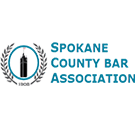Posted On April 1, 2023 Divorce,Family Law
Secretly recorded conversations can be admissible as evidence in a divorce case in Washington, but only under certain circumstances. If you are considering recording a conversation, it is crucial to understand the state’s privacy laws and consult an attorney before doing so.
Washington is a “two-party consent” state, which means that all parties involved in a conversation must consent to its recording. This includes both in-person conversations and phone calls. Therefore, if you record a conversation without the other person’s knowledge or consent, it is considered a violation of the state’s privacy laws and is generally not admissible as evidence in court.
There are some exceptions to Washington’s two-party consent statute. For example, if you are part of a conversation and openly record it, then that recording is generally admissible in court. Additionally, if you can prove that the other person had no expectation of privacy during the conversation, the recording may also be admissible. For example, if you recorded a conversation that took place in a public place, such as a restaurant or coffee shop.
However, it is important to note that even if a recording is admissible in court, it may not necessarily help your case. Judges often frown upon secretly recorded conversations, as they can be seen as a breach of trust and a violation of privacy. Additionally, if the recording was obtained illegally, it may damage your credibility in court and could potentially result in legal consequences.
When secret recordings are evidence of harassment or illegal threats, they may be admitted as evidence in divorce proceedings. However, there must be multiple instances of harassment. In addition, audio recordings that demonstrate illegal threats are exempt from Washington’s two-party statute. For example, threats of bodily harm, extortion, blackmail, etc.
If you secretly recorded a conversation relevant to your custody battle, requesting a GAL investigation could be a good option. In Washington State, a Guardian ad Litem (GAL) is a court-appointed individual, typically a licensed attorney or a social worker, responsible for representing a child’s best interests in a legal proceeding.
When a court orders an investigation, the GAL will typically perform an in-depth evaluation of the child’s circumstances and make recommendations to the court on what they believe to be in the child’s best interests. This may involve speaking with the child, the child’s parents or guardians, teachers, doctors, and other individuals involved in the child’s life. The GAL may also review medical and school records and conduct home visits to ensure that the child’s living situation is safe and appropriate. The results of the investigation will then help the court make informed decisions regarding custody, visitation, and other matters related to the child’s well-being. The GAL may also provide recommendations regarding counseling or other services that may be beneficial for the child and the family.
If you have more questions regarding secretly recorded conversations in a divorce, schedule a free consultation with Twyford Law today.
Categories
Our Law Offices
Our Seattle Office
814 Second Avenue 515,
Seattle, WA 98104
(206) 590-7085
Our Spokane Office
430 W Indiana Ave,
Spokane, WA 99205
(509) 327 0777
Our Bellevue Office
1408 140th Place NE, Suite 400,
Bellevue, WA 98007
(425) 517 3350.








